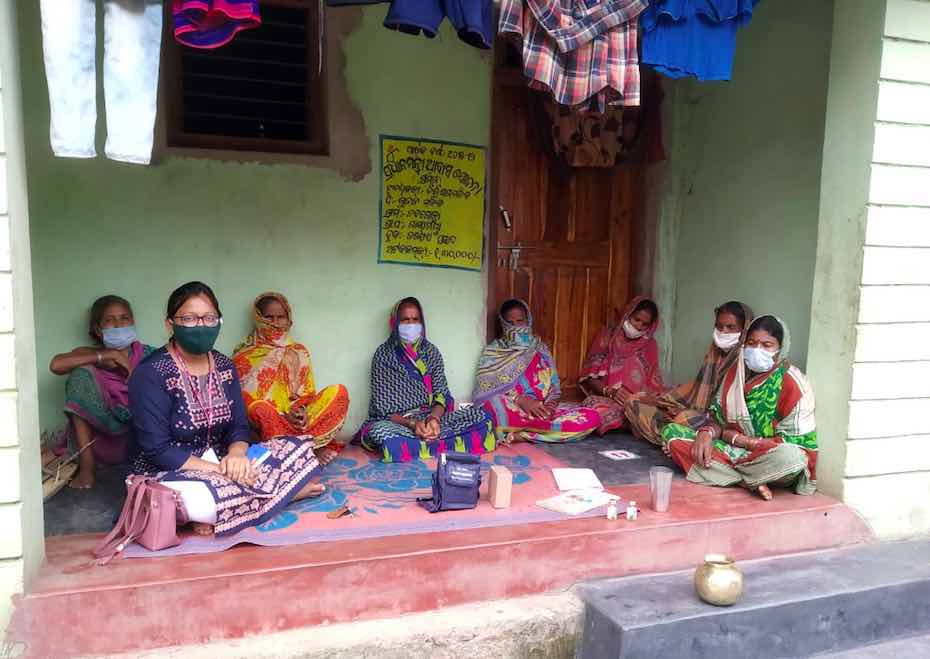Bhubaneswar: In 2020, Mandapathara village in Ganjam district witnessed several cases of diarrhea, itching, and flu. Women and children in the village, which still has no access to power, fell ill frequently. Not depending on the local administration or men in the village, about 22 women came forward to shoulder the task of water management there as the cause of infection was found to be contaminated water.
They took up odd jobs to save money for installing piped water systems and toilets and bathing rooms in the village. Not just that, these women received training from the volunteers of Gram Vikas to test the quality of water. They became leaders of water quality management in their community.
“We held awareness meetings in the village for putting a piped water and sanitation system in place. None of the men supported us at that time. We collected leaves from the forest and made leaf plates to sell in the village market. We worked as daily wagers during road construction in Khajuripalli village or as labourers at construction sites earning up to Rs 90 a day,” said Draupadi Jani, a member of Mandapathara Village Development Committee.
In December 2020, a team from Gram Vikas tested water at individual tap connections, which was found to be contaminated. Later, the team and members of the village committee found that pipes were cracked at two places. Water was tested from these two points and found contaminated with bacteria causing diarrhoea and itching.

In a year, the women were able to save about Rs 10,000, which was treated as their corpus fund. The amount was saved in a bank as a fixed deposit. They decided to use the interest income for the work done by the Village Water Sanitation Committee (VWSC)—a body they formed, to provide financial assistance to families in the village to build toilets and bathing rooms. By 2021, the village had access to piped water, thanks to the efforts of these women.
The process of installing the water system was filled with challenges. The village did not have a road. “The women cleared the way cutting down trees and bushes by themselves so a tractor could carry construction material to the site. We knew nothing about masonry or construction. But, with the help of NGO volunteers, we learnt construction. We built our toilets. Our determination inspired a few men from our village, who helped us build the overhead water tank,” Basanti Jani, secretary of Mandapathara Village Development Committee (VDC) said.
In 2021, water pipes were laid in the village. Safe drinking water is provided to households using solar power. The women formed a trained Water Quality Management (WQM) cadre. “Unlike other villages, our village is in darkness, but we have ensured piped water supply to every household. The water supplied is safe for drinking now. I have been trained and have learned the water testing protocols. We do not have any cases of diarrhoea or itching anymore. With the collective strength of the women, we have made safe water a reality for each home in our village,” said Anjani Jani is one of the 22 community cadres in Ganjam district of Odisha.
The women use a field-testing kit (FTK) to test fluoride, bacteria and nitrate in the water. The FTK consists of equipment like test tubes, reagents and colour charts. Fluoride and nitrate testing are done on water collected from two or three points like water from a household tap closest to the overhead water tank and from two or three other points. Currently, 185 women and men are engaged as WQM cadres in 185 villages.


